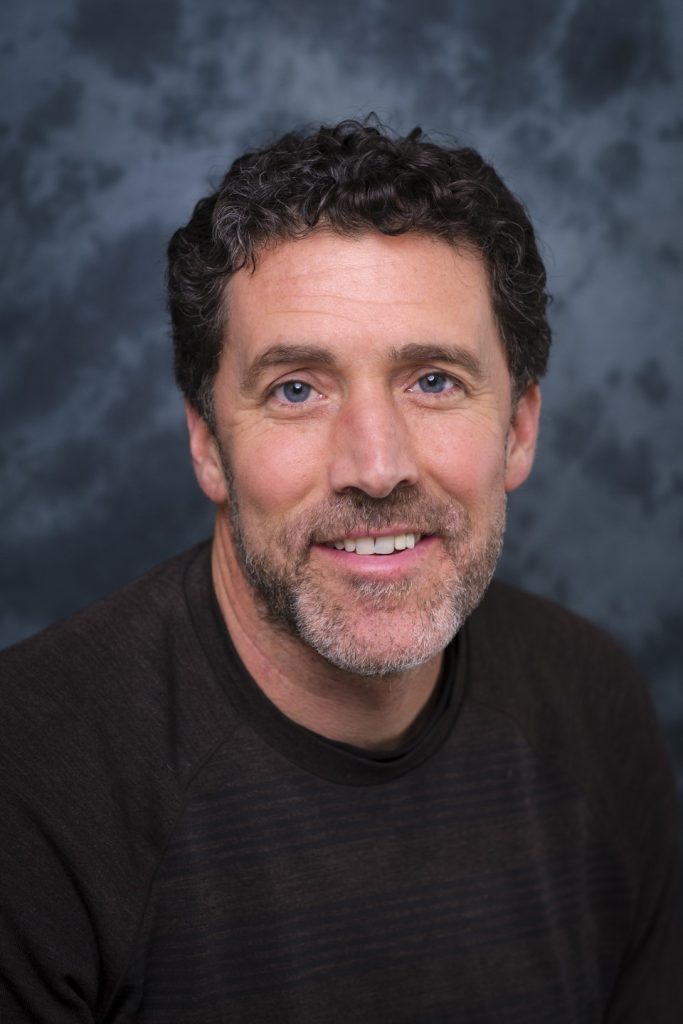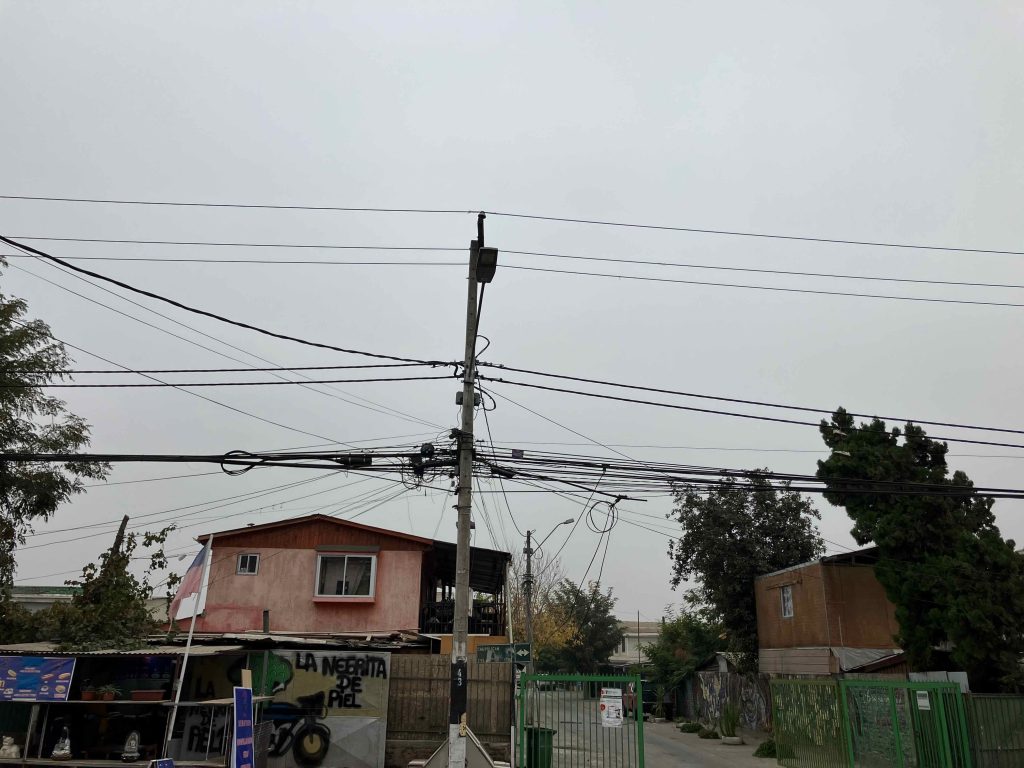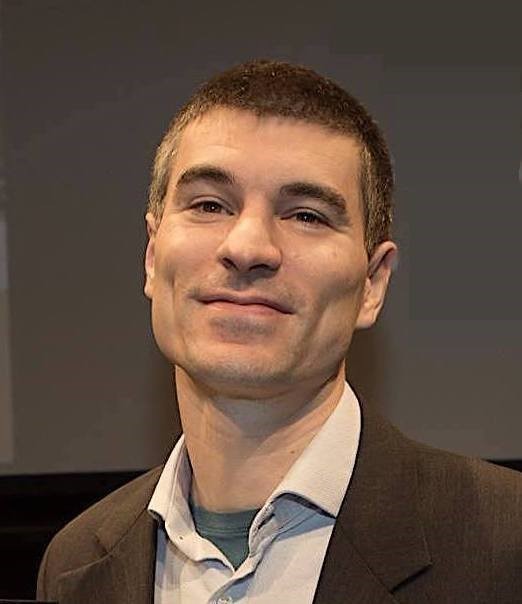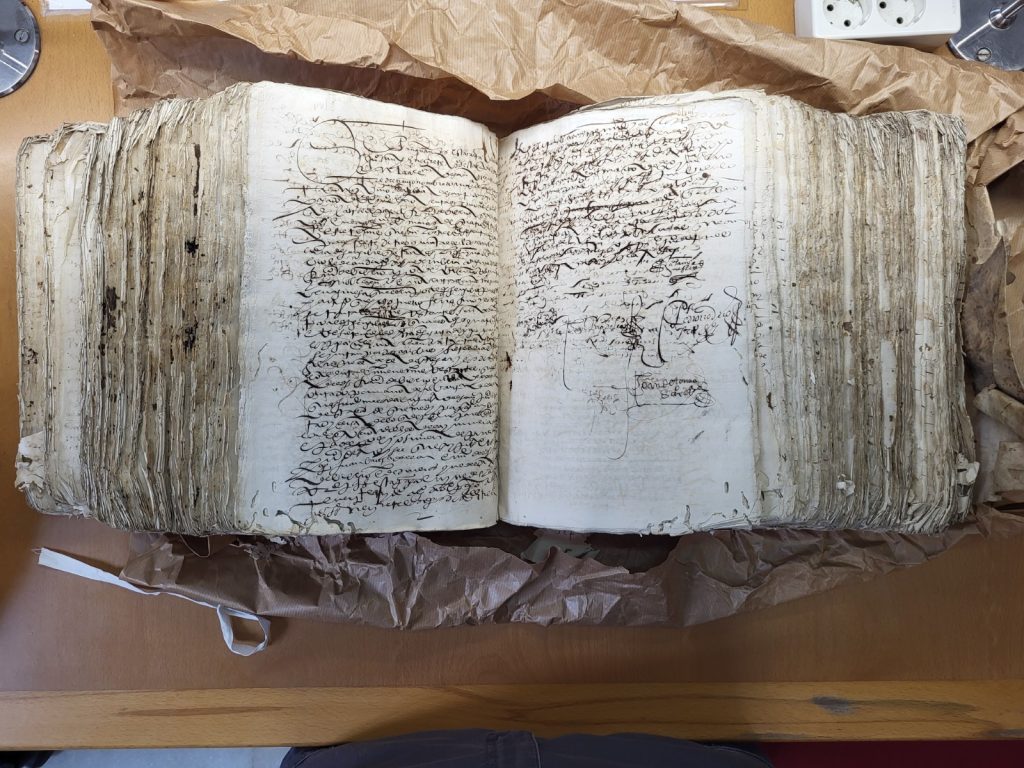By: Patti McDonald
Associate Professors of History at Michigan State University Dr. Edward Murphy and Dr. David Wheat both received grants from the National Endowment for the Humanities to work on their book projects.
Dr. Edward Murphy received a $60,000 NEH grant in 2023 for his research based in Chile. Last year, Dr. Murphy was on sabbatical in Santiago with his family while conducting research for his book project: The Urban Poor and the Grid: Political Ecologies of Electrification in Santiago, Chile, 1960-2020. The subject of this book grew out of his long-term interests in themes of mass urbanization, inequality, domesticity, state formation and political economy, with a focus on the property regimes of low-income groups in Chile. Murphy had conceived of this project while working on his first book, A Home of One’s Own: Housing Rights in the Margins of Urban Chile 1960- 2010 (Pittsburgh: University of Pittsburgh Press, 2015).
“In my first project, I looked at housing movements and squatting in Santiago from the 1950s up until about 2010,” Murphy said. “My first book tells an overall story of how people went from living primarily in squatter communities without property titles and without most infrastructure services to living with them. As I was doing the research for that project, I heard stories about people who had siphoned off electricity illegally from the grid and had been electrocuted. I heard stories about people who had electrical short circuits and had their houses burned because they were doing this kind of thing.”
According to Murphy, his new book “tells the story of how former squatters have gained access to electricity by mobilizing to receive it as a right of citizenship, tapping into the grid informally, and ultimately becoming indebted consumers.”
“The book demonstrates how these actions, and the state’s responses to them, changed how the urban poor have claimed rights and how state agencies have sought to police the poor and assert sovereign forms of power,” Murphy’s grant proposal states. “At the same time, the book develops how the urban poor are now part of an electrical grid that has become even larger and includes the development of a series of hydroelectric projects in Chile. These projects have damaged watersheds and displaced indigenous groups, leading to activism and new political affinities. The book links these areas generally examined separately.”
Murphy said an important part of his book illustrates how electrification among hundreds of thousands of urban squatters was an often tense and even violent process.
“The research says a lot about how people living in cities get access to resources. I think another element of that research is just to think about how marginalized communities have scratched and clawed to get access to some resources that a lot of people take for granted,” Murphy said.
Now that Murphy has returned from his research trip, he is focused on writing a few research articles related to his book project and plans on submitting a book manuscript to a publisher.


Electrical wires in a consolidated squatter settlement in Santiago, Chile, June, 2021.
Associate Professor of History Dr. David Wheat received a $60,000 NEH grant for the fall 2023 and spring 2024 semesters to work on his second book project, The Atlantic Itineraries of Afro-Caribbean Entrepreneur Catalina de los Santos, c.1590-1600. He started working on the grant in August of last year and is currently living in Spain and working in archives in Seville and the Canary Islands.
Dr. Wheat’s first book,: Atlantic Africa and the Spanish Caribbean, 1570-1640 (University of North Carolina Press, 2016), resituated the Spanish Caribbean as an extension of the Luso-African Atlantic world from the late 16th to the mid-17th centuries, when the union of the Spanish and Portuguese crowns facilitated a surge in the transatlantic slave trade.
As a historian of slavery, cross-cultural exchange, and transregional connections in the early modern Iberian world, Wheat’s interest in some documents he happened to find while on a previous sabbatical and research trip several years ago led to the idea for his second book project, which reconstructs the travels, social ties, and commercial contacts of an Afro-Caribbean businesswoman and shipowner named Catalina de los Santos during the 1590s.
“While on a research trip in the Canary Islands, I randomly stumbled upon these documents signed by a free woman of African descent who said that she was from the Caribbean Island of Hispaniola, which is today the Dominican Republic and Haiti. She described herself in the Canaries as a widow and as the owner of a ship. She had been in Seville for some time, wheeling and dealing with influential merchants, before sailing to the Canary Islands in Spain’s Indies fleet. At this point, she was heading back to the Caribbean, and mentioned that she had slaves and servants of her own onboard. All of this was so intriguing to me, and I knew there was an interesting story to tell here because in the Caribbean areas that I’ve previously studied, most people of African descent were enslaved or formerly enslaved. This was something I wanted to research more.”
His research then retraces De los Santos’s travels afterward.
“I found out that although she had made an agreement with a group of wealthy merchants in peninsular Spain to take a large quantity of wine from Tenerife to Mexico, she ended up selling her ship during the months she resided in the Canaries, then went to Havana, Cuba.”
Wheat wrote a short article for a journal about De los Santos, and he decided that he wanted to expand his research into a book project after combing through more documents mentioning Catalina and the details of her life. Preliminary work on the book project was facilitated by an MSU Humanities & Arts Research Program award in Fall 2022.
Wheat said he’s grateful for the NEH grant because it gives him the ability to conduct further research and hopefully complete an initial draft of his book.
“It is a fantastic opportunity to be able to focus on research and writing for an entire year,” Wheat said. “Being in Spain is also great because I can learn a lot from other historians who are skilled in working with the type of sources I’m currently using.”


David Wheat has been spending time conducting research for his upcoming book project. This archive is from a notarial record in Seville.